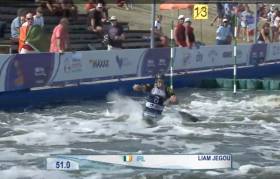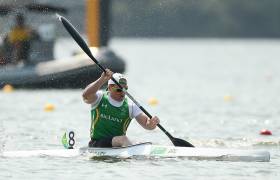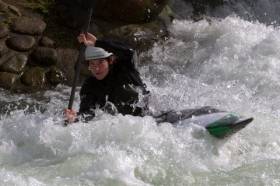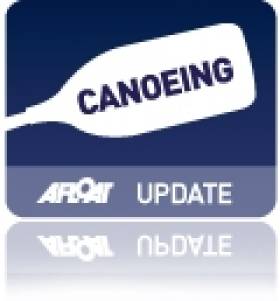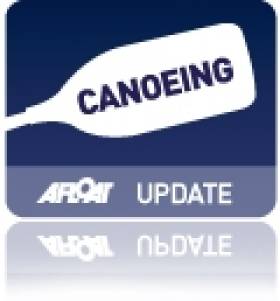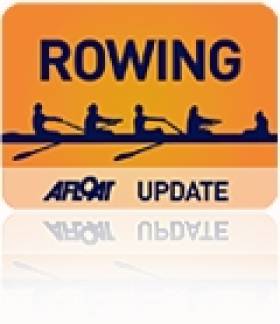Displaying items by tag: Final
#Canoeing: Liam Jegou eased into the final of the men’s C1 at the canoe slalom World Championships this morning. The Ireland paddler delivered a fault-free semi-final in 93.79 seconds to place fourth of the 10 finalists.
Canoe Slalom Under-23 World Championships, Krakow (Irish interest)
Men, C1 Semi-Final: 4 L Jegou 93.79
Sixth Place for O'Leary in Paralympic Canoe Final
#Canoeing: Patrick O’Leary finished sixth in the Final of the KL3 200 metre sprint event at the Paralympic Games in Rio de Janeiro today. The Corkman started quite well, but Ukraine, Germany and Brazil set the pace at the head of the field and took gold, silver and bronze in that order in an extremely close finish - just over a third of a second covered all three. O’Leary was 2.973 seconds off the gold medal and .584 off the bronze. The Irish man placed ahead of competitors from France and New Zealand, who finished seventh and eighth.
Paralympic Games (Canoe Sprint; Irish interest)
Men
KL3 200m - Final: 1 Ukraine 39.810 seconds, 2 Germany 39.909, 3 Brazil 40.199; 6 Ireland (P O’Leary) 42.783.
Middle Section Costs Jegou in Canoe Slalom World Final
#Canoeing: Ireland's Liam Jegou finished ninth in the Under-23 C1 at the canoe slalom World Championships this morning. The 20-year-old went off second last in the final in Krakow in Poland and set a time of 94.62 seconds. He lost time in the middle section of the course, touching gate 14 and so incurring a two-second penalty. Florian Breuer of Germany had set a time of 87.88 early in the final and it was not matched. He took gold; Lukas Rohan of the Czech Republic silver and Russia's Kirill Setkin bronze.
Canoe Slalom World Championships (Irish interest)
Men
Under-23 C1 Final: 1 Germany (F Breuer) 87.88, 2 Czech Republic (L Rohan) 89.06, 3 Russia (K Setkin) 90.43; 9 Ireland (L Jegou) 94.62.
O'Leary Fourth in World Cup Final in Duisburg
#CANOEING: Ireland’s Pat O’Leary had to settle for fourth at the Canoe Sprint World Cup in Duisburg, Germany today. The paracanoeist qualified for the final of the KL3 on Thursday. Germany’s Tom Kierey won, from Artem Voronkov of Russia and Britain’s Timothy Lodge – who was just .595 of a second ahead of O’Leary, who had also finished fourth at the European Championships earlier this month.
Canoe Sprint World Cup, Duisburg, Germany (Irish interest)
Men
Paracanoeing: KL3 200 – Final: 1 Germany (T Kierey) 41.305, 2 Russia (A Voronkov) 42.247, 3 Britain (T Lodge) 42.891; 4 Ireland (T O’Leary) 43.486.
O'Leary Qualifies for Canoe Sprint World Final
#CANOEING: Ireland paracanoeist Pat O’Leary finished third in his semi-final and qualified for the final of the K1 LTA 200m at the Canoe Sprint World Championships in Moscow today. The legs, trunk and arms competitor was fifth in his heat. The top three in the semi-finals qualified for the finals.
Canoe Sprint World Championships (Day One, Irish interest)
Men
K1 (Legs, Trunk and Arms) Heat Two (First directly to Final; 2-7 to Semi-Final); 1 Romania 40.211 seconds; 5 P O’Leary 43.198. Semi-Final (First Three to A Final): 1 Britain 42.473; 3 O’Leary 43.538.
.
Ireland's Men Charge Into World Rowing Final
Ireland’s lightweight men’s quadruple won their repechage at the World Rowing Championships in Bled in Slovenia today with a dominant performance. The crew of Niall Kenny, Michael Maher, Justin Ryan and Mark O’Donovan took the lead by 500 metres and owned the race from there. Four crews qualified from five in this race to join heat winners Italy and Germany in the A Final. This Irish crew, who took silver at last year’s World Under-23 Championships, have made it clear they intend to be serious challengers come Sunday's final.
World Rowing Championships, Bled, Slovenia – Day Four (Irish interest)Men
Lightweight Quadruple Scull – Repechage (First Four to A Final; rest to B Final): 1 Ireland (N Kenny, M Maher, J Ryan, M O’Donovan) 5:59.00, 2 Denmark 6:01.10, 3 United States 6:02.14, 4 Hungary 6:09.47; 5 Armenia 6:49.97. Poland did not start.


























